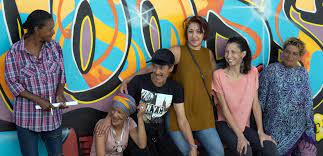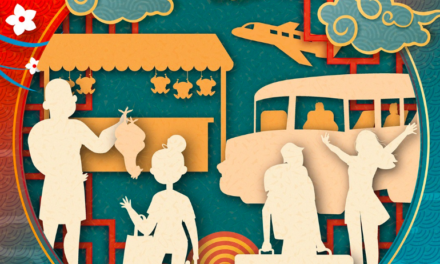The Government is implementing several schemes for the welfare of women belonging to economically weaker and socially backward sections which inter-alia include the following:
Swadhar Greh Scheme caters to the primary needs of women in difficult circumstances – women and girls rendered homeless due to family discord, crime, violence, mental stress, social ostracism or are being forced into prostitution and are in moral danger. The scheme through the provisions of shelter, food, clothing, counselling, training, clinical and legal aid aims to rehabilitate such women in difficult circumstances economically and emotionally.
Ujjawala Scheme aims to (i) prevent trafficking of women and children for commercial sexual exploitation through social mobilization and awareness generation programmes, (ii) facilitate the rescue of victims from the place of their exploitation and place them in safe custody, (iii) provide rehabilitation services through basic amenities/needs such as shelter, food, clothing, medical treatment including counselling, legal aid and guidance and vocational training, (iv) facilitate reintegration of victims into the family and society at large, and (v) facilitate the repatriation of cross-border victims to their country of origin.
One-Stop Centres (OSCs), popularly known as Sakhi Centres, aim to facilitate women affected by violence (including domestic violence) with a range of integrated services under one roof such as Police facilitation, medical aid, legal aid and legal counselling, psycho-social counselling, temporary shelter, etc.
Women Helpline (WHL) Scheme provides 24 hours emergency and non-emergency response to women affected by violence, both in public and private spaces by linking them with appropriate authorities such as Police, One Stop Centre, Hospital, Legal Services, etc. WHL also supports women in distress with rescue van and counselling services in addition to providing information about women welfare schemes and programs across the country. Women can dial 181 shortcode to avail services from Women Helpline.
National Social Assistance Programme (NSAP) is a fully funded Centrally Sponsored Scheme for the under-privileged identified by the States and UTs. The objective of NSAP is to provide a basic level of financial support.
In alignment with the goals under Nation Health Policy (NHP) 2017, the Government announced the ambitious and holistic Ayushman Bharat Programme with its twin pillars of Health and Wellness Centres and Pradhan Mantri Jan Arogya Yojana (PMJAY) in September 2018. Under Jan Aarogya Yojana, coverage is provided to poor and vulnerable families. This will help improve women’s access to health care services.
The government of India launched the Stand Up India scheme on 5th April 2016 to promote entrepreneurship amongst women, SC and ST categories, i.e., those sections of the population understood to be facing significant hurdles due to lack of advice/ mentorship as well as inadequate and delayed credit. The Scheme facilitates bank loans between Rs. 10 lakh to Rs. 1 crore to at least one scheduled Caste/ Scheduled Tribe borrower and at least one woman borrower per bank branch of Scheduled Commercial Banks for setting up Greenfield enterprises in trading, manufacturing and services sector.
Government has set up Pradhan Mantri Kaushal Kendras under Pradhan Mantri Kaushal Vikas Yojana across the country. Emphasis has been laid on creating additional infrastructure for training and apprenticeship for women, flexible training delivery mechanisms such as mobile training units, flexible afternoon batches along with local need-based training to accommodate women and ensuring safe and gender-sensitive training environment for women trainers, equity in remuneration and complaint redressal mechanism.
Mahatma Gandhi National Rural Employment Guarantee Act, 2005 (MGNREGA) seeks to ensure employment in rural households, mandating that at least one-third of the jobs generated should be given to women. MGNREGA Guidelines have special provisions to encourage the participation of women, which includes giving preference to women (especially single women) and older persons for work on worksites nearer to their residences, child care facilities at the worksite in case more than five children under 6 years of age are present, adequate representation of women in the MGNREGA staff. It ensure that widows, deserted women and destitute women are provided 100 days of work. Awareness and outreach activities are carried out to ensure that all wage seekers (including women) are able to handle bank procedures. Pregnant and lactating mothers are treated as a special category with provisions for suitable work for them.
Pradhan Mantri Shram Yogi Maan-dhan (PM-SYM) has been launched to ensure old age protection for unorganised workers including women who are not covered by any other pension scheme.
Pradhan Mantri Mudra Yojana (PMMY) has been initiated by Government, inter alia, for the facilitation of self-employment. Under PMMY, collateral-free loans upto Rs. 10 lakh are extended to micro/small business enterprises and to individuals to enable them to setup or expand their business activities. The majority of the beneficiaries under this yojna are women.
Deendayal Disabled Rehabilitation Scheme (DDRS) is a central sector scheme that aims to (i) provide grant-in-aid to non-governmental organizations (NGOs) for projects relating to rehabilitation of persons with disabilities with a view to enabling persons with disabilities to reach and maintain their optimal, physical, sensory, intellectual, psychiatric and socio-functional levels, (ii) create an enabling environment to ensure equal opportunities, equity, social justice and empowerment of persons with disabilities, and (iii) encourage voluntary action for ensuring effective implementation of the Rights of Persons with Disabilities Act, 2016.
Incentives Scheme for Providing Employment to Persons with Disabilities in the Private Sector: As per the Scheme, the Department of Empowerment of Persons with Disabilities (DEPwD) will make payment of employers’ contribution to the EPF and ESI for 10 years, there will be no salary ceiling for the Persons with Disabilities (PwD) employees and DEPwD will bear one-third of the gratuity amount due and admissible to PwD employees.
Prime Minister Awaas Yojana (PMAY-G) aims to provide ‘Housing for All’ through the provision of the pucca house with basic amenities to all houseless households and households living in kutcha and dilapidated houses in rural areas by 2022. This will also benefit the neglected, abandoned and destitute widows.
Pradhan Mantri Awaas Yojana (PMAY-U) is a Scheme with the vision to facilitate Housing for All by 2022. Under this scheme, central assistance is provided to States/UTs in addressing the housing requirement of Economically Weaker Sections (EWS) including slum dwellers in the urban areas.
Deendayal Antyodaya Yojana – National Urban Livelihood Mission (DAY-NULM) is implemented in statutory towns to reduce poverty and vulnerability of urban poor households, for improvement in their livelihoods on a sustainable basis. The mission provides for broadening of coverage to include families of disadvantaged groups like SCs, STs, women, minorities, disabled, etc. subject to a maximum of 25 percent of the above urban poor population.
Atal Pension Yojana (APY) is implemented with an objective to create a universal social security system for all Indians, especially the poor, under-privileged and workers in the unorganized sector. The scheme is open to all citizens of India between 18-40 years of age having a savings bank account in a bank or post office.
Integrated Programme for Older Persons aims to improve the quality of life of senior citizens, including women, by providing basic amenities like shelter, food, medical care and entertainment opportunities and by encouraging productive and active ageing through support for capacity building of State/ UT Governments/Non-Government Organizations (NGOs)/Panchayati Raj Institutions (PRIs)/ local bodies and the community at large.
Scheme for Development of Particularly Vulnerable Tribal Groups (PVTGs): There are certain groups among Scheduled Tribes that have declining or stagnant population, low level of literacy, pre-agricultural level of technology and are economically backward. These groups are among the most vulnerable sections of our society as they are few in numbers, have not attained any significant level of social and economic development and generally inhabit remote localities having poor infrastructure and administrative support. 75 such groups in 18 States and one UT have been identified and categorized as Particularly Vulnerable Tribal Groups (PVTGs). In 1998-99, a separate 100% Centrally Sponsored for exclusive development of PVTGs was started. Based on the knowledge and experiences gathered in the implementation of the scheme, it has been revised with effect from 17.09.2019 to make it more effective.
Women who are victims of prostitution and human trafficking are covered under the Ujjawala Scheme of the Ministry. The scheme inter-alia provides rehabilitation services through basic amenities/needs such as shelter, food, clothing, medical treatment including counselling, legal aid and vocational training and facilitates the reintegration of the victims into the family and society at large.
This information was given by the Minister of Women and Child Development, Smt. Smriti Zubin Irani, in a written reply in Lok Sabha today.












